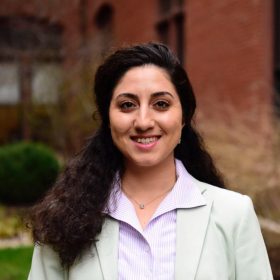Are there any philosophical issues, readings, or topics that have stayed with you since graduation?
My last year at UCLA, I took an introductory course with Professor Hsu on epistemology. The syllabus began with Edmund Gettier’s famous article against the “JTB” theory of knowledge and if I recall accurately the course progressed through history surveying responses to Gettier.
After graduating from UCLA with a BA in philosophy, I developed my final paper for Hsu’s course into a writing sample for graduate school in philosophy. I have been tackling Gettier-Era Literature as a graduate student, pursuing the same matter to which I was introduced in Hsu’s course.
What lessons or skills from philosophy do you use in your career?
Being that I am yet in the academic world of philosophy, I’m lucky. The lessons and skills with which the philosophy department equipped me are those I use daily in my current career. To identify just a few, the philosophy BA from UCLA taught me how to read philosophical or generally rich texts; how to reflect on a complex matter in a way that renders the components simple; how to manage my time to keep up with my work load; how to write clearly and concisely; to be charitable to the ideas of others; how to express my thoughts in writing that accurately express my thought; et cetera. While anyone in a serious field will benefit from these skills, they are specifically essential to my career as a continuing academic philosopher.
Do you have advice for current students or recent graduates about how to take advantage of and continue their philosophical education?
Current Students: Do not fail to prepare yourself for class meetings. It is a mistake to spend less time preparing for class as you spend in class. Before even entering the classroom, become familiar with the topic of discussion. Your time in a room with your professors is most wisely spent listening, synthesizing, and generating questions or concerns. Entering class expecting to learn by hearing it all for the first time is no way to thrive and is the precise way to waste your precious moments as a student of these intellectuals.
Recent Graduates: This may be the first time in your life that you must direct yourself. Since kindergarten, there was a path set for you. Now with your college degree in hand, your future is in your own hands. Did you learn how to critically evaluate arguments? Did you discover several of your own beliefs and their respective arguments? Deciding what to do next requires the tools you just developed. If you reflect on how much time you spent on each subject of your studies and realize that you spent the most mental energy on philosophy, then apply to graduate school in philosophy. You will not regret following your philosophical interests.


